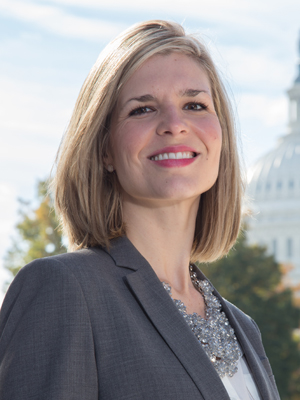By Nan Futrell, BJC Staff Counsel
 In November, the U.S. Supreme Court will hear oral arguments in Town of Greece v. Galloway, a case in which two citizens successfully challenged an upstate New York town council’s practice of opening official meetings with prayers by local clergy. Controversies over local government prayer continue brewing across the country, sparking heated debate and sometimes legal action. Does legislative prayer violate the Establishment Clause of the First Amendment? As with many religious liberty issues, that question is more complicated than it seems.
In November, the U.S. Supreme Court will hear oral arguments in Town of Greece v. Galloway, a case in which two citizens successfully challenged an upstate New York town council’s practice of opening official meetings with prayers by local clergy. Controversies over local government prayer continue brewing across the country, sparking heated debate and sometimes legal action. Does legislative prayer violate the Establishment Clause of the First Amendment? As with many religious liberty issues, that question is more complicated than it seems.
The Court has directly addressed legislative prayer only once, in Marsh v. Chambers, a 1983 case that upheld the Nebraska legislature’s practice of opening official sessions with prayers offered by the same paid legislative chaplain over a period of 16 years. Marsh thus carved out a narrow exception to the general Establishment Clause prohibition on government-sponsored religious exercises. This constitutional anomaly has often confounded lower courts and legal scholars in their attempts to reconcile Marsh with traditional religious liberty principles, especially in settings outside state legislatures and Congress.
The Marsh Court relied heavily on the longstanding tradition of official prayers in Congress. It noted that the First Congress authorized the appointment of paid chaplains three days before it approved the First Amendment. The Court took this as evidence that the Founders did not consider opening legislative sessions with prayer by paid chaplains to violate the Establishment Clause. While the Court observed that historical practices, standing alone, cannot justify modern constitutional violations, it concluded that “the practice of opening legislative sessions with prayer has become part of the fabric of our society [and] … it is simply a tolerable acknowledgement of beliefs widely held among the people of this country.”
Although Marsh said nothing of prayer at the local government level, it did identify some limits on legislative prayer generally, holding that prayer opportunities may not be “exploited to proselytize or advance any one, or to disparage any other, faith or belief.” The Court also observed that the Nebraska legislative chaplain’s prayers at issue in Marsh were typically “nonsectarian,” reflecting Judeo-Christian values and “the American civil religion,” indicating that the practice had not been misused to favor one religion or denomination over others.
The Baptist Joint Committee has long warned of the dangers of legislative prayer in any government setting and advocated using moments of silence in lieu of such prayer. Unique characteristics of local governments distinguish them from state legislatures and Congress in ways that make official prayer especially problematic at the local level. Most obviously, local governments do not share the long, uniform history of legislative prayer in Congress that was given such weight in Marsh (a feature which has itself been the subject of much debate). Moreover, prayers in Congress historically have been offered for and at the behest of legislators themselves — not the citizenry at large.
In Congress, neither legislators nor citizens are required to be present when the chaplain offers prayers. By contrast, citizens often must appear at local government meetings for any number of reasons: to petition public officials directly, to offer public comment on matters of community import, to receive recognition for civic achievements or even to fulfill school curriculum requirements. Simply put, citizens interact more directly with, and with a greater expectation of immediate impact upon, local government officials than they do with state legislators or Members of Congress. Meaningful participation in the political process should never be conditioned upon willingness to take part in a religious exercise.
Prayers at government meetings are not immune from careful constitutional scrutiny, contrary to the sweeping claims of some legislative prayer supporters. Prayers recited during official government meetings are government-sponsored speech, even if voiced by visiting clergy. In Greece, for example, the town council decided a prayer would be offered, selected the prayer-givers and delegated its podium to the speaker. Under these circumstances, the prayer-giver represents the town. Marsh’s pronouncement that legislative prayer cannot be used to advance a particular faith invites certain limitations designed to avoid that result. Yet all too often, local government prayers, including those in Greece, overwhelmingly reflect Christian views and sometimes seem more like religious worship than a mere “acknowledgement of beliefs widely held.” Even in Congress, guest chaplains are instructed to be mindful that the legislators they are addressing come from many different faith traditions.
Moments of silence, in which citizens may choose to pray (or not pray) according to the dictates of their own consciences, are an appropriate way to solemnize the important work of government while respecting the beliefs of all citizens. It is not the business of government to conduct religious worship or advance religion. Instead, this is our job — one that history counsels is best left to the faithful.
The Baptist Joint Committee filed a brief in Town of Greece v. Galloway. Read the news release or download the brief online.
From the September 2013 Report from the Capital.





